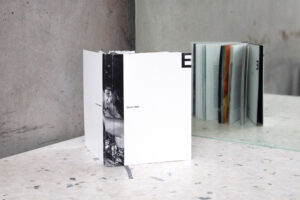
E. | Masterarbeit 2023
Die Novelle „E.“ greift ein Genre auf, welches seine Blüte in der Avantgarde des 20. Jahrhunderts hatte und dessen Potential weitgehend ungenutzt blieb: das des Roman Imagé. Fotografien sind hier kein illustrierendes Beiwerk sondern bilden eine Symbiose mit dem Text. Mein Entwurf entwickelt dieses Format zu einem innovativen Storytelling Prototypen weiter, der LeserInnen auf multisensorische Weise in seine Handlung wie Stimmung hineinzieht. Geschildert wird eine fatale Liebesbeziehung, wobei das Bildmedium zwei Funktionen übernimmt: 1. Erkenntnis: Über die Fotos erschließen sich Charakterzüge der Hauptfigur, die über den Text nicht greifbar werden und machen sie so vielschichtiger. 2. Lust: Die Bilder zeigen Alltagsmotive aus Metropolen, die der Ich-Erzähler bereist, aber nicht beschreibt, und nehmen den Rezipienten so auf eine Weltreise mit. Das Buch umfasst 28 Fotografien auf 116 Seiten, ist bequem in einer Hand zu halten, wobei fadengeheftetes, mattweißes 90 g Munken Papier mit hohem Volumen für eine angenehme Haptik sorgt.
The novella “E.” takes up a genre that had its heyday in the avant-garde of the 20th century and whose potential remained largely unused: that of the Roman Imagé. Photographs here are not an illustrative accessory but rather form a symbiosis with the text. My design develops this format into an innovative storytelling prototype that draws readers into its plot and mood in a multisensory way. A fatal love affair is described, with the image medium taking on two functions: 1. Knowledge: The photos reveal character traits of the protagonist which cannot be grasped through the text, making them more complex. 2. Pleasure: The images show everyday motifs from metropolises that the first-person narrator travels to but does not describe, thus taking the recipient on a trip around the world. Comprising 28 photographs on 116 pages, the book is comfortable to hold in one hand, with high-volume, thread-stitched, matte white 90 g Munken paper providing a pleasant feel.
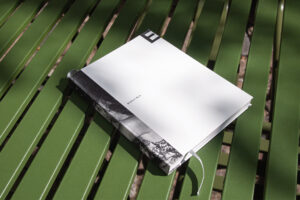
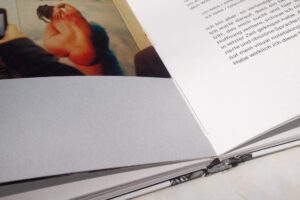
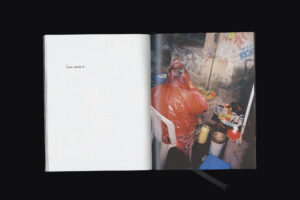
Prozess
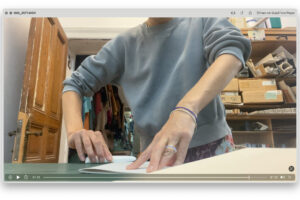
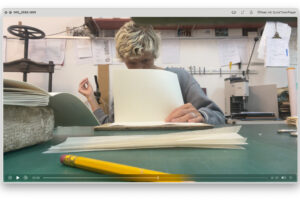
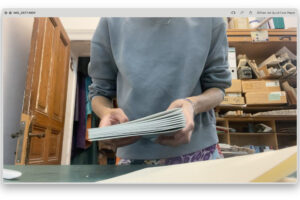
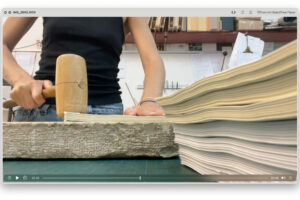
Betreut durch:
Prof. Axel Kufus
Prof. Dr. Kathrin Busch
Erik Spiekermann
